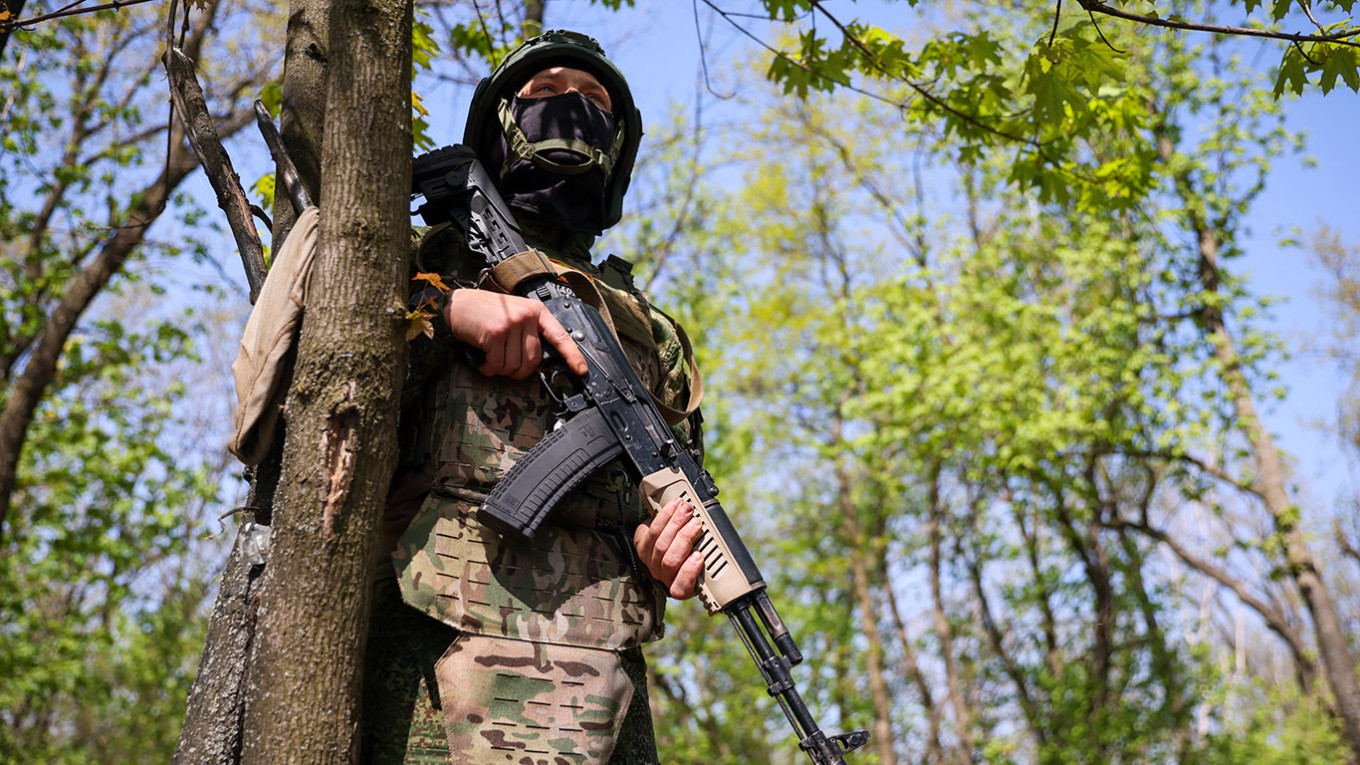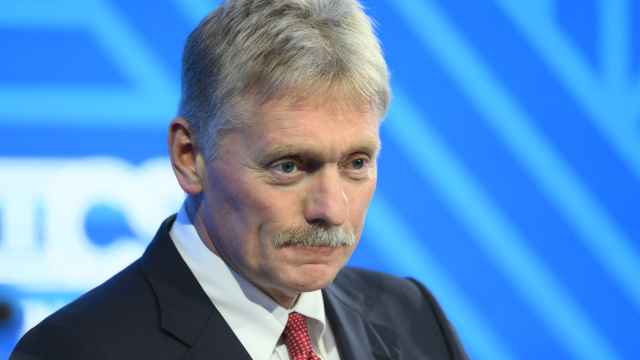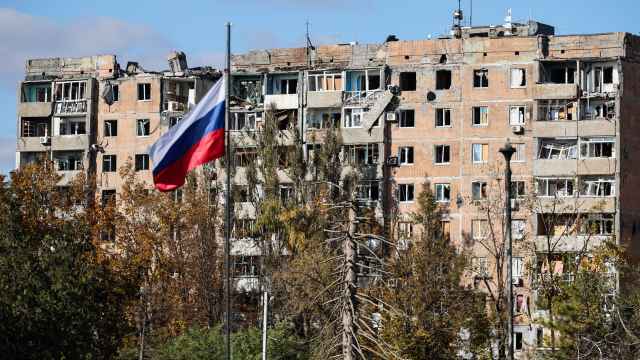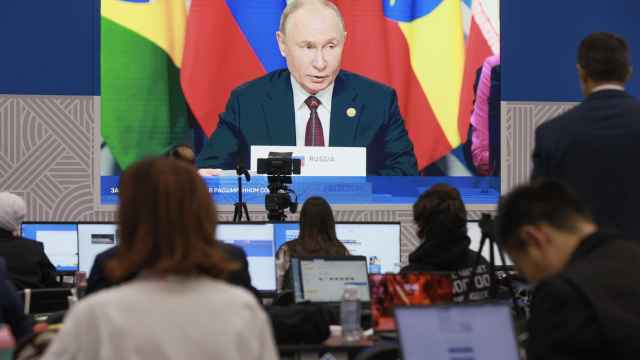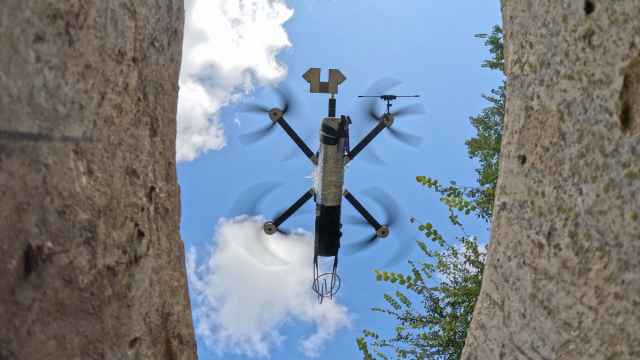Russia and Ukraine’s first face-to-face talks in three years come as they both grapple with a tense situation on the front lines, with little chance of a breakthrough for either side.
Military experts and Russian servicemen agreed that hostilities show no signs of slowing, describing the front as “dynamic.”
“Peace talks become possible when there is a stalemate — when neither side can gain an advantage. As of now, there is no stalemate,” said Ivan Stupak, a military expert and former Ukrainian security services officer.
“I have to admit there are areas where Kyiv is faltering. Russia can smell blood, so to speak, and understands that it should keep pushing while it still has the chance,” Stupak told The Moscow Times.
The U.S.-based Institute for the Study of War said Russian forces continue offensive operations, albeit without major advances, in the Kharkiv, Zaporizhia and Kherson regions of Ukraine.
In Donetsk, Russian forces recently advanced in the Lyman and Pokrovsk directions, the ISW said.
According to Stupak, the Russian army is also concentrating its efforts on the northeastern Sumy region, which borders Russia’s Kursk region. Ukraine occupied some territory there in August 2024, but Moscow has since recaptured it.
The pro-war Telegram channel Rybar, which has close ties to the Russian military and over 1.2 million subscribers, said early Thursday that “Russian Armed Forces continue to carry out artillery and air strikes on enemy positions.”
Moscow’s army currently controls around one-fifth of Ukraine, including most of the Luhansk and Donetsk regions in the east and parts of the Zaporizhzhia and Kherson regions in the south, in addition to the Crimean peninsula, which Russia annexed in 2014.
Last year, President Vladimir Putin declared that any peace deal would require Ukraine to withdraw its forces from the four regions Russia claimed to have annexed in 2022.
Foreign Minister Sergei Lavrov took the same stance, insisting that recognition of Moscow’s control over these territories is “imperative.”
Ukraine insists that it will never recognize the occupied territories as Russian. However, President Volodymyr Zelensky has acknowledged that a diplomatic compromise may eventually be needed to regain the regions “through diplomatic means.”
Last week, Ukraine and several European allies also pushed for a full and unconditional 30-day ceasefire starting Monday. Moscow ignored that call, instead proposing renewed peace talks in Turkey.
Putin’s call for negotiations followed a 72-hour ceasefire the Russian leader declared to mark May 9 Victory Day commemorations, which both sides accused each other of violating.
The Conflict Intelligence Team, an independent group that conducts open-source investigations of the Russian military, said fighting continued along much of the front during the brief ceasefire. Some areas saw reduced activity and less use of aviation, it said, with the most notable change being the absence of long-range missile and drone strikes on Ukrainian cities.
A Russian serviceman currently stationed on the front line also said there was no indication that the fighting would let up anytime soon.
“The short pause was used for regrouping, resupplying ammunition, delivering food to the front lines, rotating units or replacing groups stationed at strongpoints,” the serviceman told The Moscow Times, speaking on condition of anonymity due to the sensitivity of the matter. “It was a time of intense activity aimed at preparing for future assaults.”
“There’s absolutely no indication, from what we can see on the ground, that there will be a sudden stop in the fighting in the next week or two — or even the next month or two,” he said.
“I think no one — including the General Staff, most likely — really knows what cards the diplomats are holding, what’s being discussed with Western partners or how far those talks have progressed,” he said.
“So the military machine continues to operate based on the objectives that were previously set.”
A Message from The Moscow Times:
Dear readers,
We are facing unprecedented challenges. Russia's Prosecutor General's Office has designated The Moscow Times as an "undesirable" organization, criminalizing our work and putting our staff at risk of prosecution. This follows our earlier unjust labeling as a "foreign agent."
These actions are direct attempts to silence independent journalism in Russia. The authorities claim our work "discredits the decisions of the Russian leadership." We see things differently: we strive to provide accurate, unbiased reporting on Russia.
We, the journalists of The Moscow Times, refuse to be silenced. But to continue our work, we need your help.
Your support, no matter how small, makes a world of difference. If you can, please support us monthly starting from just $2. It's quick to set up, and every contribution makes a significant impact.
By supporting The Moscow Times, you're defending open, independent journalism in the face of repression. Thank you for standing with us.
Remind me later.



